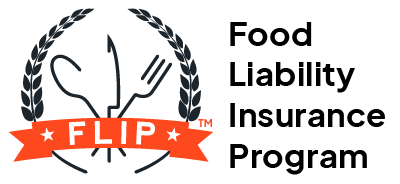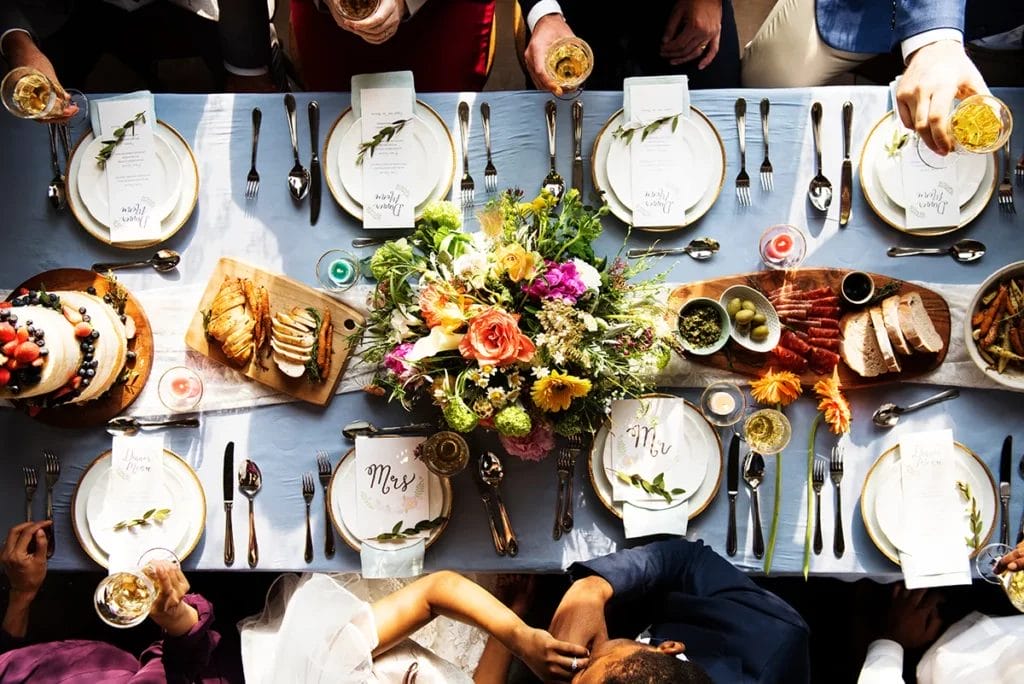Landing a spot on a wedding venue’s preferred vendor list can take your catering or bartending business to exciting new heights. When your name is on a preferred vendor list, you reap the benefits of increased exposure, leading to consistent bookings and steady revenue.
We’re here with four top tips on how to become a preferred wedding vendor so you stand out from other vendors vying for a spot and have the venue saying “I do” to listing you!
What Is a Preferred Vendor List?
A preferred wedding vendor list is a highly curated list of businesses developed by a venue or event planner for their clients.
It’s no secret that planning a wedding is a lot of work, and sifting through potential vendors is time-consuming. Many couples defer to their venue’s or planner’s preferred list when selecting a wedding bartender or caterer for their big day to save themselves the stress.
What Criteria Must Preferred Vendors Meet?
Each planner or venue has their own standards for preferred vendors, but generally, you need to meet the following criteria:
- You’ve worked with them before: Venues and planners don’t want to recommend anyone they don’t have first-hand experience working with.
- You have a positive, professional reputation in your area: It doesn’t matter how high-quality your dishes are or how much expertise your bartenders have — you should be well-respected by your clients and others who have worked with you.
- You offer exceptional customer service: Planners and venues want to know you’re responsive, communicative, and kind with your clients.
- You match their aesthetic and/or mission: A venue based in an old, converted barn will add caterers, bartenders, and florists who can match that rustic vibe to their preferred list.
- You have a stunning portfolio and a professional online presence: How you present yourself matters not just to clients, but to venues and planners you want to work with. Invest in high-quality imagery and a beautiful, functional website.
4 Secrets to Landing a Spot on a Wedding Venue Preferred Vendor List
1. Build a Strong Relationship With the Venue
Focus On Venues You’ve Already Booked This Year
Don’t put all your time and energy into a venue you worked at a while back, but have no plans to return to. Instead, build a solid, professional relationship with a venue or planner you’ve booked in the coming months.
If you know you’re catering a wedding in September and it’s currently May, that means you have four months to nurture a genuine connection with the venue manager and staff.
Do Your Research
Venues and planners want to know you are serious about working with them if you ask to be included on their preferred list. The best way to demonstrate this is by fostering a deep understanding of them, including:
- Who their wedding sales/catering manager is: This person is typically in charge of the preferred list, so identify who they are to avoid sending inquiries to the wrong person (LinkedIn is an excellent resource for this).
- Their history and/or mission statement: Typically found on their website, this information is key to understanding their business and making sure it aligns with your own values. Your pitch will mean more if you can prove that your two businesses make a good match.
Get to Know Them Personally
As you work with the venue or planner this year, learn their names and the names of their staff members. Greeting everyone on a first-name basis will make all of your communication with them feel more personal and less strictly business.
Plus, if one of the staff members shines on the wedding day and you want to give them a personal shoutout, it’ll mean more if you mention them by name.

2. Exceed Expectations
Offer Complimentary Services
Everybody likes free stuff, so treating the venue staff or wedding planner to something on the house is sure to leave a great impression.
For example, a caterer might prepare food or set a few dishes aside for the venue staff to enjoy during an event. A bartender might ask the staff ahead of time if anyone has non-alcoholic beverage requests so they can set aside a cooler for them to sip on throughout the wedding.
Surprise and Delight
Sending a gift package to the venue or planner is a friendly way to stay top-of-mind with them, even if you aren’t actively working with them anymore. For example, a few weeks after wrapping up a big wedding, send a gift basket to the venue to say thanks.
Demonstrate thoughtfulness by matching the theme and look of the basket to the vibe of the venue. For instance, if you’re working with an avant-garde venue filled with funky glass sculptures and contemporary installations, add local artisan chocolates, a hand-blown glass paperweight, and a handwritten note on an artsy postcard.
Create a Highlight Reel or Digital Photo Album
3. Emphasize Your Status as a Licensed and Insured Business
Demonstrating professionalism is fundamental to impressing wedding planners and venues. But this goes beyond being quick to respond and showing up to events on time. It also means having bartender liability insurance or wedding catering insurance, depending on whether you serve alcohol or not.
No matter what type of vendor you are, you face third-party liability risks, such as:
- A guest trips over one of your rolling carts and breaks their wrist
- You accidentally back your catering van into the fence at an outdoor venue, and they need to put in a new section to replace it
If your business activities cause these accidents, you can be sued to cover medical bills and repairs/replacements.
Serving alcoholic beverages at weddings exposes you to alcohol-related claims as well, like:
- An intoxicated bridesmaid drives home and causes a car accident that injures two other people
- One of your bartenders accidentally serves alcohol to a minor with a convincing fake ID
Venues have their own insurance, but it only protects them from incidents they cause. They want you to be insured so you’re also financially prepared, and that they aren’t held responsible for your mistakes.
Advertise that you’re an insured vendor on your website and socials and include your Certificate of Insurance (COI) in your pitch. This boosts your credibility and sets you apart from uninsured competitors. It also demonstrates the level of professionalism they expect from their preferred vendors, all while protecting you from the financial burden of claims.
Learn more about the cost of liability insurance and what it can do for you by clicking the button that best describes your business!
4. Seal the Deal With the Perfect Pitch
Once you’ve established a strong relationship with the venue or planner and have their attention, it’s time to make your pitch for a spot on their preferred vendor list.
Your pitch should include a brief presentation highlighting your value as a vendor. Include details about what benefits you offer your clients and how you solve their problems or fill a gap in the market. Emphasize how reliable and communicative you are, as well as what sets you apart from competitors.
Think of how you describe your business in the executive summary of your business plan — that’s how you should talk about it during your preferred vendor pitch.
You’ll also need to:
- Request a meeting: Reach out to the event planner or venue staff member managing referrals to ask for a formal meeting. This is where you’ll present your pitch.
- Include your portfolio and references: Be ready to present a physical or digital copy of your portfolio and social proof from previous clients, such as Google reviews or social media comments. If you have references or endorsements from other industry professionals, such as other vendors you’ve worked with, include those too.
- Thank them and follow up via phone or email: Show your gratitude for the opportunity to speak with them about becoming a preferred vendor and express excitement about working together. In your message, briefly recap the main points you covered as a friendly reminder.
Pitching yourself to venues and planners is nerve-wracking, but if you’ve done all of the above tips, you’ll be in a solid position to succeed.
FAQs About Getting on a Preferred Vendor List
What Mistakes Keep Vendors Off Preferred Lists?
- Cold-calling or emailing venues and planners, advocating for a spot on their preferred list (they are overwhelmed with cold calls and emails daily, so personal outreach stands out!)
- Being careless or cold towards the venue managers and staff during an event
- Only going after spots on the most popular venues’ lists, regardless of whether they’re a good fit for your business or target client
Do I Have to Pay to Be On a Preferred List?
In some cases, yes. Some venues require vendors on their preferred list to give them a kickback every time they book a client in exchange for their referral. Others allow vendors to pay a fee to be on a list.
While paying to be on an approved list allows you to circumvent an often lengthy process, it’s important to consider how your clients may perceive you if they learn you paid to be on the list. Most venues and planners will not advertise that their preferred vendors paid to be there, but will be honest with couples if they ask. This can come at a cost to your credibility and trust.

Alex Hastings
Seattle-based copywriter and (WA) licensed insurance agent Alex Hastings leverages her experience as a lover of fast-casual food, baked goods, and iced oat milk lattes. She holds a B.A. in Creative Writing from Western Washington University. Before working at Veracity, she was a retail copywriter at Zulily and an English language teacher in South Korea. Alex is fully trained on FLIP insurance coverages and writes content that connects food and beverage business owners with the policies they need.
Seattle-based copywriter and (WA) licensed insurance agent Alex Hastings leverages her experience as a lover of fast-casual food, baked goods, and iced oat milk lattes. She holds a B.A. in Creative Writing from Western Washington University. Before working at Veracity, she was a retail copywriter at Zulily and an English language teacher in South Korea. Alex is fully trained on FLIP insurance coverages and writes content that connects food and beverage business owners with the policies they need.

Kyle Jude
Kyle Jude is the Program Manager for Food Liability Insurance Program (FLIP). As a dedicated program manager with 10+ years of experience in the insurance industry, Kyle offers insight into different coverages for food and beverage business professionals who are looking to navigate business liability insurance.
Kyle Jude is the Program Manager for Food Liability Insurance Program (FLIP). As a dedicated program manager with 10+ years of experience in the insurance industry, Kyle offers insight into different coverages for food and beverage business professionals who are looking to navigate business liability insurance.


